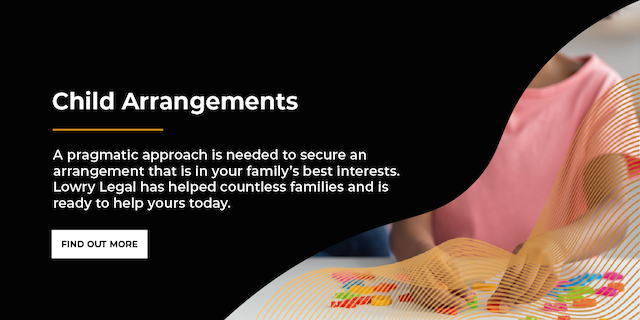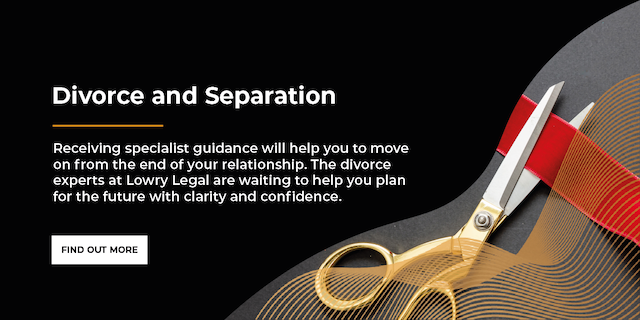
The divorce process is often seen as a lengthy, stressful, and expensive journey. This is particularly true in cases involving high net worth or those with an international element.
As a result of this perception, many separating couples may be reluctant to attend mediation sessions before commencing their divorce — with many believing it to be an unnecessary hurdle that could further slow everything down and prolong the process. But can you divorce without mediation, and are there any benefits involved in taking part?
What is the Purpose of Mediation in Divorce?
Mediation is designed to help divorcing couples resolve any child or financial related disputes without the need for court action. It involves meeting with a specialist third-party who will be completely independent and not take sides. Since going to court can be time-consuming and expensive, it’s recommended that both parties work out their differences wherever possible.
The main goal of mediation is to make divorces as simple and cost-effective as possible. During the sessions, the mediator will listen to both parties’ arguments but is not able to give advice. Instead, they will encourage mutual understanding in the hope of reaching an agreement.
Is Mediation Compulsory in a Divorce?
Under current legislation, it is possible to divorce without mediation if your separation is amicable, or if you have no disputes that require resolution in court. However, if you have financial or child-related matters that cannot be resolved independently, you must make a referral for a Mediation Information and Assessment Meeting (MIAM) or claim an exemption.
The reasoning behind this is to keep court action as a last resort, to be employed only when all other attempts at resolution have failed. It also acts to save divorcing couples both time and money. In cases where mediation may not be appropriate, or if your partner refuses your attempts to arrange mediation, you will still be able to make an application to the courts.
What is MIAM Mediation?
Mediation Information and Assessment Meetings (MIAM) act as your first point of contact with a mediator, allowing couples to outline their positions and discuss any ongoing unresolved issues. Your mediator will then assess your situation, outline the processes involved, and determine whether mediation is right for your specific circumstances.
The mediator will have their first meeting with each party individually. This provides them with the opportunity to better understand each person’s unique perspective and their viewpoint. Once both meetings have been held, the mediator will then be able to form a plan of action should you decide to proceed with the process.
At this point, your mediator will also make a recommendation on whether further mediation would be beneficial for you. You are not obligated to continue with mediation, even if it’s deemed beneficial, but you may be required to explain your reasonings for not doing so in court.
Is There an Exemption to MIAMs?
There are several exemptions to MIAMs, including when both parties have already reached an agreement on their disputes, cases of domestic violence, concerns regarding child protection, situations where a delay would pose a risk to either spouse, you have attended a meeting in the last four months, or when a mediator has determined that mediation would not be suitable.
You would also be exempt from a MIAM if you don’t have any contact details for the other party, you have a disability which prevents the meeting from taking place, or if one person does not live in England or Wales (unless a virtual meeting has been offered).
The Benefits of Mediation in Divorce
The main benefit of mediation is the fact that it gives divorcing couples the chance to work through their differences amicably in a calm environment. This enables them to bypass the often time-consuming and expensive court process. The process is extremely versatile and can cover a wide range of disputes, such as finances, child arrangements, and property matters.
Mediation can also assist with the division of joint debts, something which can be quite problematic during divorce proceedings. In addition, the process enables both parties to focus on what really matters, something which can de-escalate potentially volatile situations.
Another main benefit of mediation is its ability to help families move forward after the divorce is finalised. The process can be extremely difficult and stressful to navigate, especially when children are involved. Mediation helps both parties establish key communication skills which can last for years to come.
Specialist Legal Advice is Still Important
While mediation can be extremely beneficial for divorcing couples, it’s important not to overlook the role specialist legal advice plays during proceedings. Your solicitor will be able to provide guidance, before, during, and after the sessions have taken place — something which the mediator is not allowed to do.
Solicitors and mediators work in tandem together. Although your lawyer will largely not be involved in mediation sessions (unless it is a hybrid mediation), they can help you to prepare for sessions, advise you on your legal position, and give you the tools you need to reach an agreement which would be deemed fair in law.
A Holistic Approach to Divorce and Mediation
Lowry Legal is committed to making the divorce process as stress-free as possible. This is why we provide specialist legal advice alongside mediation services, so we can take care of everything you could possibly need under one roof.
Our mediators and divorce solicitors work hand in hand to deliver a targeted and proactive service which understands your circumstances and requirements. We will then develop a bespoke strategy designed to deliver your desired results.
As a boutique high-net-worth law firm, we regularly handle divorce cases involving significant wealth, complex financial and trust structures, and even those spanning multiple jurisdictions. Whatever you need, we can help. We even work with third-party experts such as forensic accountants and tax professionals to provide you with a holistic service that covers all bases.
To find out more about our services and how Lowry Legal can help you achieve the best possible result, contact our team today.











